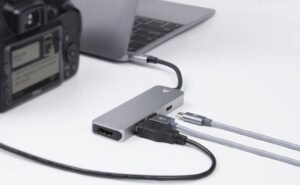Did you know that 90% of users love the SpringWell CF1 filter? It’s the top choice in industry tests1. As we enter 2025, finding the best whole house water filter is key for clean home water. These systems not only make your water taste better and clearer but also cut down on harmful stuff. This is crucial for your family’s health and safety.
In this article, we’ll explore the top whole house water filters for 2025. We’ve got insights from experts and test results to help you choose. Whether you’re eyeing the SpringWell CF1 or want to know about water contamination, we’ve got you covered. Our detailed info will guide you in picking the right water filter.
Key Takeaways
- 90% of users report satisfaction with the SpringWell CF1 filter.
- Understanding your water quality is vital to choosing the right filtration system.
- Look for features such as filter life and maintenance ease in a whole house water filtration system.
- Regular maintenance, like sediment filter replacement, ensures optimal performance.
- The best filters can significantly reduce the long-term cost of water treatment.
- Comparative analysis of different systems can reveal substantial cost savings over time.
Introduction to Whole House Water Filters

Whole house water filters are key systems that link to a home’s main water source. They make sure every drop of water is clean. Unlike filters for specific faucets, these systems purify water for drinking, cooking, and more, improving water quality2.
These filters are super convenient. They make sure water from every tap is clean. This not only improves water quality but also helps protect your plumbing and appliances from damage3.
Activated carbon filters are a top pick for home water systems. They get rid of bad smells, chlorine, and some chemicals. Granular activated carbon filters work well even under high pressure3. Adding UV systems can kill up to 99.99% of bacteria and viruses3.
Getting a whole house water filter is a smart move. About 80% of U.S. homeowners worry about their tap water. These systems cut down contaminants, making water safe for use2.
Importance of Clean Water for Your Home
The importance of clean water in every home is huge. It’s key for drinking, cooking, and staying clean. Bad water can harm your health, causing skin problems from chlorine and other chemicals4.
Drinking bottled water can cost a lot. A family drinking 2-3 bottles a day can spend over $500 a year5.
Getting a whole house water purifier can make water taste better and look clearer. It removes harmful stuff like chlorine, bacteria, and lead4. Clean water is good for your health and helps your appliances last longer4.
Studies show that a good water filter can fix water taste issues and protect your appliances from damage5. It also helps the environment by reducing plastic waste from bottled water5. Having clean water is essential for your family’s health and your home’s appliances.
What to Look for in the Best Whole House Water Filter
When looking for the best whole house water filter, there are key factors to consider. First, understand the filtration technology used. Sedimentation filters are good for removing big particles. Activated carbon systems get rid of organic stuff and some heavy metals but can’t handle bacteria and viruses6. Ion Exchange (IEX) resin filters last a long time, up to 8 to 10 years6.
Next, think about the maintenance requirements. Some systems, like IEX, need brine for regeneration, which might harm the environment6. Check how easy it is to maintain and the cost to make sure it fits your life. Also, look at the capacity and flow rate. A big filter, like the iSpring system, can filter 100,000 gallons, enough for a year for a family of four7.
Cost is also important. Whole house water filters cost between $129.99 and $549.99, offering choices for those on a budget8. Read whole house water filter reviews to see what others think. Lastly, check for certifications, like NSF International approval, which means the filter meets high standards7.
| Filter Type | Key Features | Longevity | Cost Estimate |
|---|---|---|---|
| Sedimentation Filters | Removes larger particulates | Varies | $$ |
| Activated Carbon Filters | Effective against organics, poor for bacteria | 1-5 years | $$$ |
| Ion Exchange Resin Filters | Softens water, limited environmental impact | 8-10 years | $$$ |
| UV Disinfection Systems | Disinfects microorganisms | Varies | $$ |
Understanding Your Water Quality
It’s important to know the quality of your water for a healthy home. Many common contaminants can get into municipal water systems. This can make your drinking water unsafe and taste bad. By learning about these contaminants and the need for water testing, you can protect your family’s health.
Common Contaminants Found in Municipal Water
Municipal water systems can have harmful contaminants. Here are some examples:
- Lead: Often found in older pipes, it’s dangerous, mainly for kids.
- Arsenic: A toxic element found in some groundwater.
- PFAS: Used in many industrial processes, these chemicals can build up in water.
- Chlorine: Used to disinfect, but can create harmful byproducts.
- Nitrates: High levels can come from agricultural runoff.
- Coliform Bacteria: Shows possible contamination from fecal matter.
Knowing about these common contaminants helps you find the right water filters for your home9.
The Importance of Water Testing
Regular water testing is key to finding health threats. Public water systems test water yearly, but it’s not always safe at home9. It’s best to use reliable testing, like lab analyses, for accurate results. DIY test strips are often not accurate enough9.
Knowing what contaminants are in your water lets you pick the best filters. Good filters can remove up to 98% of contaminants if maintained well10. This way, you can protect your family from harmful substances.
Types of Whole House Water Filtration Systems
Knowing about different whole house water filters is key to choosing the right one for your home. Two main types are whole house carbon filters and reverse osmosis systems. Each has its own strengths and weaknesses, so it’s important to pick the one that fits your needs best.
Carbon Filters
Whole house carbon filters are great at removing chlorine, lead, pesticides, and more from your water. This makes them a top choice for families. A U.S. Geological Survey study found that about 50% of U.S. tap water contains harmful compounds, like “forever chemicals.” These can be filtered out with the right system11.
These filters also make your water taste better and smell fresher. They’re often cheaper and simpler to install than other options, which is why many homeowners prefer them12. Yet, they might not catch all dissolved contaminants, so they’re often used in multi-stage systems.
Reverse Osmosis Systems
Reverse osmosis systems are top-notch at filtering out contaminants, removing up to 99% of them, including heavy metals and salts13. They’re a favorite among those who want the cleanest water possible. While they cost more upfront, they’re low maintenance and can handle a lot of water.
It’s worth noting that reverse osmosis can also remove good minerals from your water12. Some systems need a big tank, which can be a problem in smaller homes11. Still, for families looking for the best protection against water contaminants, a whole house reverse osmosis system is a solid investment.
Best Whole House Water Filter: SpringWell CF1
The SpringWell CF1 is a top choice for whole house water filters. It uses a four-stage filtration process to remove over ten contaminants. This makes your home water healthier. It can handle up to 1,000,000 gallons, perfect for homes with one to three bathrooms14.
This means you get clean water for a long time without needing to change filters often15.
Four-Stage Filtration Process
The SpringWell CF1’s four-stage filtration is what makes it stand out. It starts with a sediment filter to catch big particles. Then, a KDF filter removes heavy metals.
The activated carbon filter cuts down chlorine and VOCs, improving taste and smell15. Adding a UV filter gives extra protection against germs, making it very versatile14.
Long Filter Life and Maintenance
The SpringWell CF1 has a long-lasting filter that lasts about ten years or 1,000,000 gallons, depending on your water. The pre-filter needs to be changed every 6 to 9 months. But, this is still a low maintenance option for those with busy lives14.
The system also comes with a lifetime warranty on tanks and valves, and a six-month money-back guarantee. This gives customers peace of mind about their investment14.
Even though it costs more upfront, the long-term savings are worth it. The extended filter life and fewer replacements make the SpringWell CF1 a smart choice for reliable water filtration15.
Top Rated Whole House Water Filters for 2025
When picking the best whole house water filter, look at what makes each one special. These filters remove common water pollutants like chlorine, lead, and pesticides. Customer reviews help show how well these filters work and last, guiding your choice.
Features That Set Them Apart
- Multi-Stage Filtration: Many whole house filters use several stages to catch lots of contaminants. For example, a two-stage filter can remove over 80 contaminants and handle up to 100,000 gallons of water, keeping your home’s water clean16.
- High Flow Rate: Some systems can move water at a rate of 15 gallons per minute, perfect for big families16.
- Longevity and Maintenance: Filters that need to be replaced every 6 to 12 months are easy to maintain and still effective16.
- Contaminant Removal Efficiency: The best models can catch harmful stuff like microplastics and PFAS, which are bad for your health16.
Customer Reviews and Ratings
What people say about a filter is key in finding the best one. For instance, the Aquasana 3-Stage Max Flow Under Sink Water Filter is praised for removing 77 contaminants. It costs about $149 a year to replace17. The Brita Everyday Elite Water Filter Pitcher is another example, showing you can get good quality without spending a lot. It costs around $30 a year to replace and filters out heavy metals17.
When picking the best whole house water filter, think about both its features and what others say. This will help you choose the right one for your home.
Whole House Water Treatment System Comparison
Choosing the right home water filter system is a big decision. You need to look at whole house water treatment system comparison details. Each system has its own strengths, like customer ratings and how well it removes contaminants. For example, the Rhino® system gets a 5 out of 5 rating, showing it’s very popular18. On the other hand, the Rhino® Max Flow system has a 3.7 out of 5 rating, showing some users are not as happy18.
Looking at how well these systems work, some can remove up to 97% of chlorine from your water. The OptimH2O® system is great at removing lead, cysts, and PFOA/PFOS, with a 5 out of 5 rating18. This shows it’s important to pick a system that fits your water needs.
Cost is also a big factor. The cost of replacement filters can vary a lot. It’s important to think about these costs when choosing a system. Also, many systems can filter up to 1,000,000 gallons or last for ten years18.
Here is a comparative summary of some popular systems:
| System | Customer Rating | Capacity (gallons) | Contaminants Reduced |
|---|---|---|---|
| Rhino® Whole House Filter | 5/5 | 1,000,000 | 97% Chlorine, Lead, PFOA/PFOS |
| Rhino® Max Flow | 3.7/5 | 1,000,000 | Chlorine, Sediment |
| OptimH2O® | 5/5 | Not Specified | Lead, Cysts, PFOA/PFOS |
| Rhino® Well Water with UV | Rated Excellent | 500,000 | Bacteria, Viruses |
Costs Associated with Whole House Filters
It’s important to understand the costs of whole house filters before making a decision. Several factors affect these costs, including the initial price and long-term savings. A good filtration system offers both immediate and ongoing financial benefits.
Initial Investment vs. Long-Term Savings
The average cost for a home water filter is $2,050, ranging from $1,044 to $3,26619. Basic systems start at $850, while advanced ones with UV light can cost up to $2,90019. Remember, the long-term savings can make up for the initial cost. Homeowners might need to replace appliances less often and spend less on maintenance thanks to efficient filters20.

Financial Benefits of Reducing Water Contaminants
Whole-house filters can greatly reduce harmful contaminants, lowering health risks and medical costs21. They can also save money on utility bills, as clean water makes appliances work better and last longer20. Plus, using filtered water means you’ll use less cleaning products, saving money on detergents and chemicals21.
Affordable Whole House Water Filters for Budget-Conscious Consumers
Finding the right water filter can be tough, but affordable options make it easier. These filters let families have clean water without spending too much. There are many choices, all offering great value, so everyone can get the water they need without sacrificing quality.
Cost-Effective Solutions Without Compromising Quality
The iSpring Whole House Water Filters range from $158.94 to $579.99, fitting different budgets22. The iSpring WGB21B-CPB can remove up to 99% of lead, showing its power22. Also, the Urban Defender™ whole house water filter is said to outperform more expensive systems, proving quality doesn’t have to be expensive23.
Value for Money Analysis
Looking at value means checking both price and performance. The Rhino® Well Water with UV system is great for homes with up to 2.5 bathrooms, offering a flow rate of 14.7 gallons per minute24. It also kills 99.99% of viruses and bacteria, keeping water safe24. It’s smart to check your local water report to find the best filter for your area23.
The Future of Whole House Water Filtration Technology
The future of whole house water filtration technology is exciting. New innovations are coming, offering efficient ways to get clean water at home. The VZN Ultrafiltration System can catch particles as small as 0.015 microns, which is tiny compared to a human hair. It works for small homes to big families, showing it’s versatile25.
Smart technology is also being added. This lets users check their water quality and get alerts for maintenance. It makes using the system better and more reliable.
This new tech is also about saving money and the planet. By not needing bottled water, families save money and help the environment. They also cut down on plastic waste25.
As people want better water, new filters will need less upkeep. They’ll work well even in big homes with lots of bathrooms. This meets the needs of families and changing homes26.
New tech will remove more contaminants from water. Future systems might tackle specific problems like VOCs and chlorine vapor. This will make drinking water safer and protect against harmful chemicals during activities like showering26.
As tech gets better, we’ll see a new standard in home water systems. This will lead to healthier homes for everyone.
Customer Experiences and Success Stories
Real customer experiences show how well whole house water filters work. People share how these systems improve their water quality and give them peace of mind. Their stories often talk about caring for the planet and their health, which are key today.
Testimonials from Satisfied Users
Kamaria Bobbitt gave Dupure a 5-star rating, showing she’s very happy27. Jenny Baudean talks about the health benefits of clean, sustainable water, showing a trend towards eco-friendly choices27. Byron Wilson has had Dupure service his system since 2013, proving its durability27.
Moh DooHee thanks Dupure for their help and quick installation, showing the value of good service27.
Before-and-After Water Quality Tests
Water quality tests show how well filters work. Michi Barahona saw a big change in her water quality right after installing Dupure27. Jamie Woodall found it easy to solve her hard water problem with Dupure’s help27.
Kolbe Nguyen says Abel’s help before and after installation made his experience great, showing the importance of after-sales care27.

Many customers give Dupure 5 stars, showing they’re very happy27. Knowing about flow rates and capacities helps you choose the right system. For example, the Aqua-Pure 3M Water Filtration System filters up to 100,000 gallons of water28.
This amount can last a typical family over eight months28.
FAQ
What is a whole house water filter?
A whole house water filter is a system that connects to your home’s main water supply. It treats all the water that comes into your home. This means every faucet, shower, and appliance gets clean, filtered water.
Why is clean water important for my health?
Clean water is key for staying healthy. Bad water can cause stomach problems and skin issues. It also helps your plumbing and appliances last longer by stopping sediment buildup and corrosion.
What should I consider when buying a whole house water filtration system?
Look at the filtration technology, how easy it is to maintain, its capacity and flow rate, and the cost. Also, know what contaminants are in your water to pick the best system.
What common contaminants might be found in municipal water?
Municipal water often has lead, chlorine, PFAS, and disinfection byproducts. Knowing this helps you choose the right filter.
How do carbon filters work in whole house water filtration?
Carbon filters adsorb impurities and chemicals from water. They remove chlorine, VOCs, and sediments. This improves taste and odor, making them popular for whole house systems.
Are reverse osmosis systems suitable for whole house filtration?
Yes, reverse osmosis systems remove many contaminants, like heavy metals and salts. But, they need more upkeep and have slower flow rates. They’re better for drinking water than whole house use.
How long do whole house water filters typically last?
Whole house water filters last from several years to over a decade. For example, the SpringWell CF1 filter can treat about one million gallons of water with little upkeep.
What are the financial benefits of investing in a whole house water filter?
A good whole house water filter saves money in the long run. It reduces health risks and appliance repairs caused by hard water buildup.
How can I verify the effectiveness of a whole house water filter?
Check customer testimonials and before-and-after water quality tests. They show real improvements from using a filtration system.
Conclusion
Choosing the right whole house water filter is key for your family’s health. These systems protect your water from harmful contaminants. They make sure you have clean water at every tap in your home29.
It’s crucial to know your water quality. This helps you pick the best filter technology. You might choose activated carbon, reverse osmosis, or UV disinfection30.
We’ve talked about great products like the 3M Aqua Pure and SpringWell systems. They use multi-stage filtration to remove lead and chlorine31. Remember, a good filter system is a long-term investment in your health29.
Start by figuring out what you need for cleaner water. Look at all the options available. Choose the best whole house water filter for your family’s health31.






